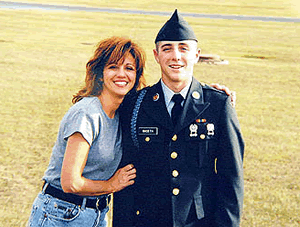Warning Fails to Prevent Electrocution of U.S. Soldiers
More than a dozen American soldiers have died or received severe electrical shocks in Iraq, reportedly as a result of faulty electrical work often done by ill-trained Iraqis and Afghans under the supervision of Houston-based contractor KBR.
More than a dozen American soldiers have died or received severe electrical shocks in Iraq, reportedly as a result of faulty electrical work often done by ill-trained Iraqis and Afghans under the supervision of Houston-based contractor KBR. American electricians who worked for KBR, which is responsible for
Your support matters…The New York Times:
In October 2004, the United States Army issued an urgent bulletin to commanders across Iraq, warning them of a deadly new threat to American soldiers. Because of flawed electrical work by contractors, the bulletin stated, soldiers at American bases in Iraq had received severe electrical shocks, and some had even been electrocuted,
The bulletin, with the headline “The Unexpected Killer,” was issued after the horrific deaths of two soldiers who were caught in water — one in a shower, the other in a swimming pool — that was suddenly electrified after poorly grounded wiring short-circuited.
“We’ve had several shocks in showers and near misses here in Baghdad, as well as in other parts of the country,” Frank Trent, an expert with the Army Corps of Engineers, wrote in the bulletin. “As we install temporary and permanent power on our projects, we must ensure that we require contractors to properly ground electrical systems.”
Independent journalism is under threat and overshadowed by heavily funded mainstream media.
You can help level the playing field. Become a member.
Your tax-deductible contribution keeps us digging beneath the headlines to give you thought-provoking, investigative reporting and analysis that unearths what's really happening- without compromise.
Give today to support our courageous, independent journalists.









You need to be a supporter to comment.
There are currently no responses to this article.
Be the first to respond.